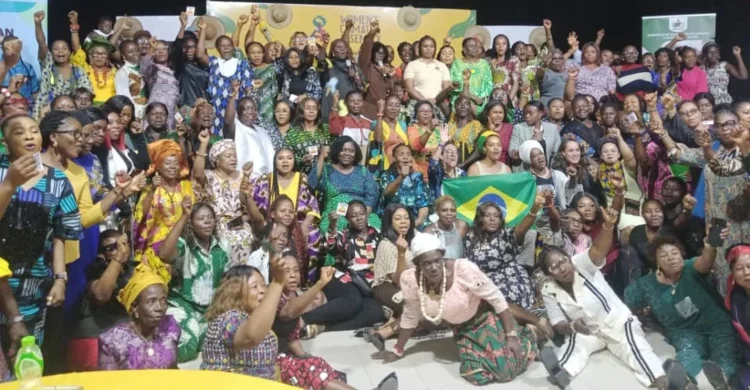Women’s groups in Nigeria, Brazil, and the Netherlands have called for global cooperation to tackle the worsening impacts of climate change in Nigeria and across the world.
The groups comprised of women representatives from Brazil, the Netherlands, and 10 Nigerian states, including Akwa Ibom, Bayelsa, Bornu, Rivers, and the Federal Capital Territory (FCT), among others.
Dr Emem Okon, Convener of the 2025 Women Climate Assembly (WCA), made the appeal during the opening of the conference held in Port Harcourt on Thursday.
The conference was themed, “Promoting Women’s Critical Role in Climate Change Mitigation Initiatives.”
Okon, who is the Executive Director of the Kebetkache Development and Resource Centre, emphasised the need for governments to involve women in policymaking and to strengthen collaboration among stakeholders in mitigating climate challenges.
According to her, women and children are disproportionately affected by worsening climate conditions, which have resulted in increased flooding, extreme heat, and respiratory illnesses.
“In this year’s conference, we are focussing on women’s inclusion in climate change discourse, considering that weather patterns have significantly changed over the years with severe negative impacts on our lives.
“We now contend with intense heat, heavier rainfall, and frequent flooding which displace people from their homes, farmlands, and livelihoods, and in some cases, lead to loss of lives,” she said.
Okon highlighted the severe challenges faced by women in riverine communities, including rising sea levels and gas flaring in the Niger Delta region.
She noted that Nigeria had been flaring gas for nearly seven decades, resulting in deforestation and pollution of the environment, rainwater, and other sources of drinking water.
She added that high carbon emissions and water contamination were contributing to the rise in respiratory diseases across the region.
“Drastic measures must be taken to arrest the situation, especially as the impact of climate change is doubled on women.
“When something tragic happens to our husbands, sons, or fathers, it is the women who bear the burden of care.
“This is why we have come together to share our experiences, deliberate, and strategize on how to make our voices heard by policymakers,” Okon stated.
She stressed that policymakers at local, national, and international levels must listen to the live experiences of women to craft solutions that genuinely address their needs.
Okon further called for collaboration among African leaders and the international community to address the growing climate crises.
Delivering the keynote address, Prof. Enogbo Eneseh, a development expert, observed that women had been at the forefront of climate change mitigation efforts in many countries.
He urged greater commitment through the formulation of policies that would create opportunities for women to contribute meaningfully to climate action.
“Women must be more actively involved, recognising that they are among those most severely affected by climate change.
“There is a need for a transnational network to tackle this global challenge, as climate change is neither a Nigerian nor an African problem alone.
“It is a collective responsibility of the global community to support developing nations, particularly women, who are most vulnerable to its effect,” he said.
Eneseh added that Nigeria continued to grapple with oil pollution and carbon emissions caused by International Oil Companies (IOCs) operating in the Niger Delta.
“The attention of the international community must be drawn to these issues, which are primarily caused by IOCs,” he lamented.
Mrs Caroline de Moura, leader of the Brazilian delegation, commended the conference organisers for their dedication to advancing the fight against climate injustice.
She called for stronger collaboration among nations affected by climate change.
“Like Nigeria and many other countries around the world, Brazil is also severely impacted by climate change, a multi-stakeholder approach is needed to address these pressing concerns,” she concluded.














